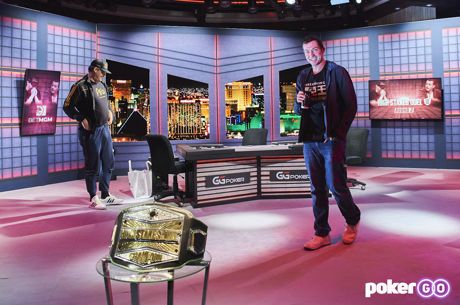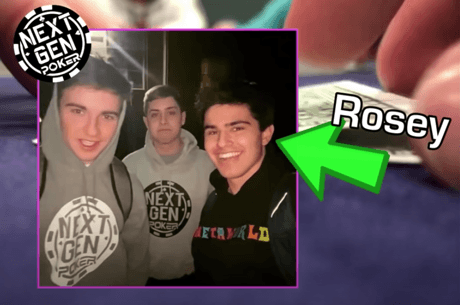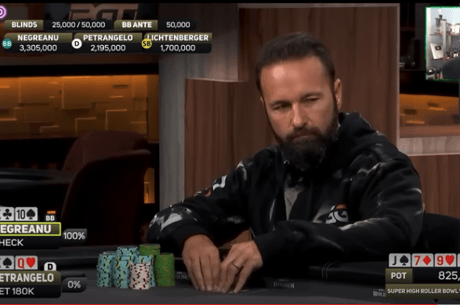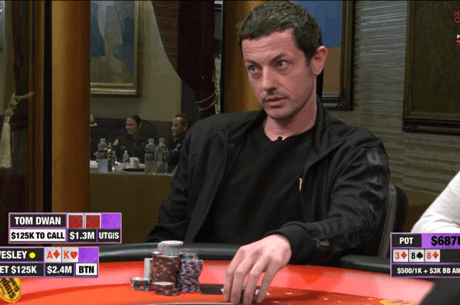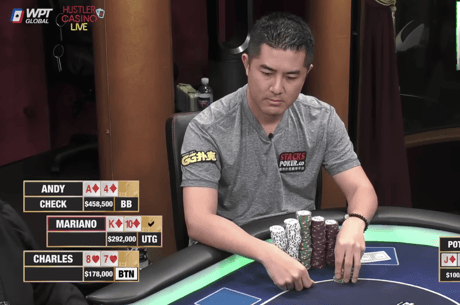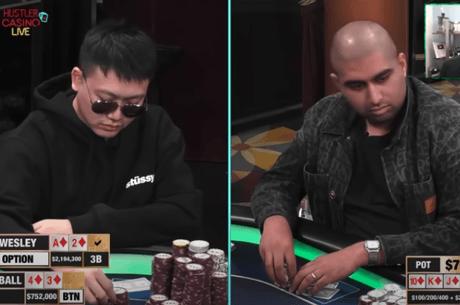Did Tom Dwan Soul Read Phil Hellmuth in High Stakes Duel III?
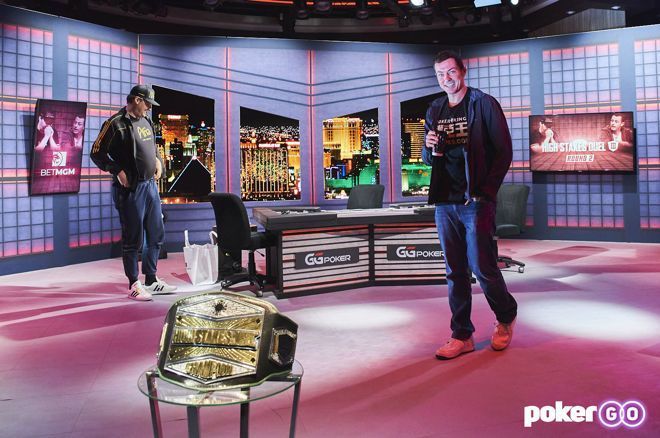
Battling against Phil Hellmuth is nothing new to Tom Dwan, and there's a good chance Dwan's experience playing with Hellmuth influenced his decision-making in this hand.
The following hand took place during PokerGO's High Stakes Duel III Round 3 between Dwan and Hellmuth, which Hellmuth came out on top of.
The hand kicked off with blinds and 1,000/2,000 and Dwan (86,000) limping in on the button with K?10?. While many players would opt to raise, it is fine to mix it up and develop a limping strategy. Hellmuth (310,000) raised to 10,000 and Dwan opted to call, as he should against most opponents.
One benefit of limping with hands like this is that if you know your opponent is going to be very aggressive against limps, then you can limp in and very confidently call. However, if your opponent is only going to raise over limps with very good hands, you may actually want to find a nitty fold. (Hellmuth himself is known for frequently finding these seemingly nitty folds and often ends up being against hands that have him crushed.)
If you watch the High Stakes Duel III matches you will see that Hellmuth raises very aggressively with some really junky hands when he thinks his opponent will fold. And, very often, Hellmuth uses big bet sizings with his junky hands, making this a clear call.
Checkout the PokerNews High Stakes Duel Hub here!
Note that three-betting is not an optimal strategy for Dwan because it allows Hellmuth to fold out his garbage and shovel in a lot of money with his good hands.
The flop came 5?4?2? and Hellmuth opted to check. This is a spot where the preflop aggressor will want to bet with a lot of their range, which includes big pairs and ace-highs with a decent number of outs. For example, if Hellmuth had AxQx, he would have four outs to the three for a straight and three outs to both the ace and the queen, assuming his overcards were live.
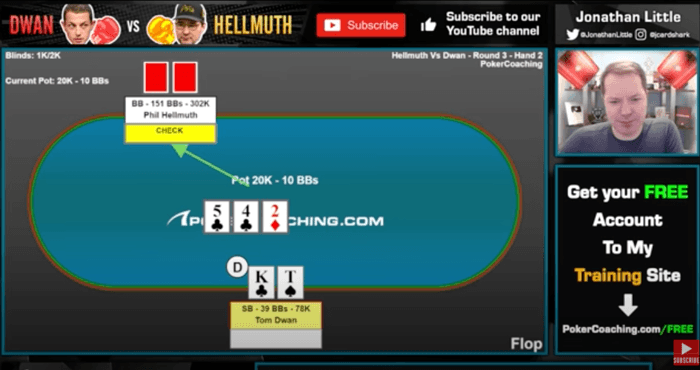
Also, Hellmuth loves to bluff with hands like 7x2x, 7x3x and 7x4x, and a lot of those hands would have made pairs or straight draws on this board. So I think this is a spot where Hellmuth should bet frequently, meaning alarm bells should have been going off for Dwan when Hellmuth checked.
Dwan checked back on the flop to bring the A? on the turn, giving Dwan the king-high flush draw. Hellmuth bet a small 6,000, allowing Dwan to continue with his flush draw since he was getting great odds to do so.
Dwan should also develop a raising range, which should include:
- Hands that can confidently get it all in (like flushes)
- Premium draws
- Junky draws (like a hand with the 6?)
If Dwan got reraised, he could confidently call with his premium hands and fold out his junky draws.
The river brought the 3? to put a straight on the board and Hellmuth checked. What would you do in this situation?
Your Stack (BTN): 72,000
Their Stack (BB): 296,000
Pot: 32,000
- Check
- Bet 11,000 (small)
- Bet 32,000 (big)
- Bet 72,000 (all-in)
Best Free to Play Slots
This is a fun one because I'm not sure what Hellmuth's range looks like. Hellmuth is very tricky and trappy, meaning he will check the river with some flushes or sixes, so Dwan has to be very careful in this spot when it comes to bluffing too often.
That said, when Dwans bluffs he wants to have a good club in his hand, like the king or the queen, because that's going to block some of Hellmuth's auto-calls. If Hellmuth had a hand like the AxK?, he would be very inclined to call because he would block Dwan's obvious value bets.
"If you bet pot, you should ask whether you will get substantially fewer folds than if you go all in."
I probably would have gone all in. This is a scenario where you can value-jam with sixes for a straight, even though you could be against a flush sometimes. Most players won't have a six here, and Hellmuth probably would have bet if he had one. Most players don't slow-play quite often enough with a hand like a six or a flush, so you could start discounting those hands from your opponent's range.
Once you discount those hands, all of which could still be in your range, you can go for a river bet. A small bet doesn't make sense because you will get called frequently. If you bet pot, you should ask whether you will get substantially fewer folds than if you go all in. It's definitely a player-dependent scenario, and I don't know what the answer is against Hellmuth.
Dwan opted to check back with his king-high. It turned out to be the right move as Hellmuth had the stone nuts with 3?2? for a straight flush.
Looking back at how the hand played out, I think Hellmuth could have bet bigger on the turn to build the pot and missed out on value by not doing so. This was a pretty good bluff spot for Dwan, who has shown he can get out of line every once in a while, but he might have developed some live reads on his opponent that led him to check back.
For more on this hand check out my breakdown in the following video:
Jonathan Little is a professional poker player and author with over $7,000,000 in live tournament earnings. He writes a weekly educational blog and hosts a podcast at JonathanLittlePoker.com. Sign up to learn poker from Jonathan for free at PokerCoaching.com. You can follow him on Twitter @JonathanLittle.
*Lead image courtesy of PokerGO.





